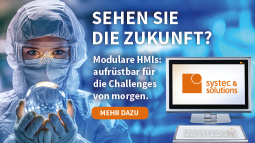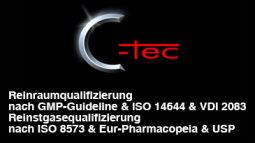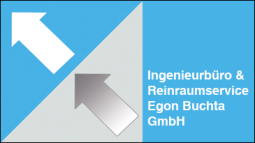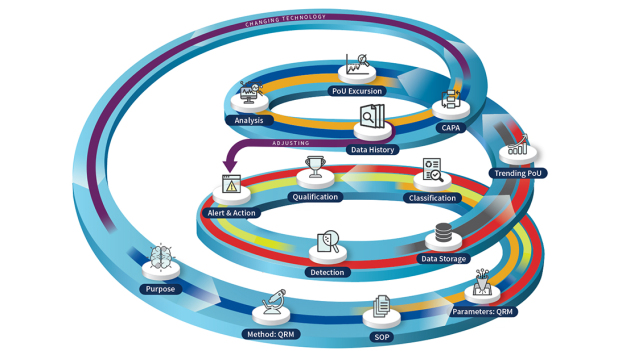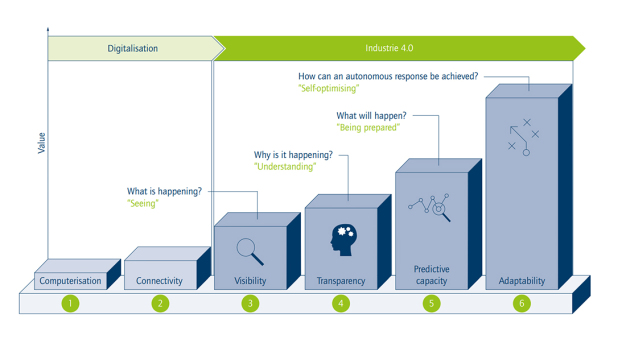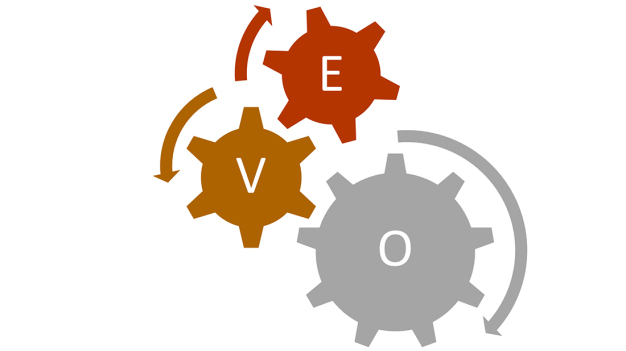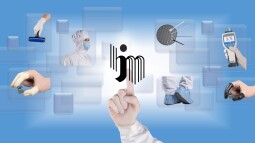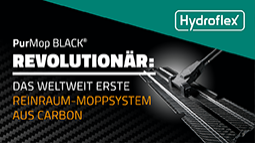- Industry 4.0
A New Challenge for Quality Experts – the Data Quality Concept
Abstract
The role of quality systems in pharmaceutical organizations has grown faster than any other function during the last 15 years. During this period, a small group dedicated to traditional Compliance grew and expanded to include Quality Experts in areas such as validation, product release, operations, sterility assurance, and other specialized functions. Creating a deeper quality connection between manufacturing and engineering has always been the aim of that growth. Little by little, quality became fundamental to every step of the pharmaceutical manufacturing process: changing from a silo concept to a more fluid one. Now, a new challenge is approaching. The fourth industrial revolution (Pharma 4.0™1) is the beginning of the “Smart Facility” era, where digitalization and automation will combine to reach very complex applications and life cycles. In this brand-new framework, Quality Experts will face the challenge of rethinking their roles and redesigning the Quality Systems of their pharmaceutical companies to be based on the concepts of Data Quality.
The ICH Idea of Pharma
Since 1990, the International Council for Harmonization (ICH) has aimed to achieve a unique response worldwide to ensure that safe, effective, and high-quality medicines are developed and registered in the most resource-efficient manner. Between 2005 and 2008, with the publication of the Q9 and Q10 guidelines, the council explained what the quality systems should be and how they should work to assure the highest possible quality drug product.
During these years, we can affirm that most of the pharmaceutical firms in the world designed their quality system to fit the ICH guidelines, enhancing the ICH’s role in the pharmaceutical organization. Simultaneously the value and the challenge of the ICH was, fundamentally, to use science and risk-based quality system principles to cover the entire manufacturing product life cycle.
The New Keywords
The ICH Q9 and Q10 were the real revolutions for what we can call the blockbuster era of pharmaceuticals, or “Pharma 2.0”. This era was characterized by the mass production of homogeneous products for extended periods of time. The main characteristics of these Pharma 2.0 organizations was that they were controlled by a hierarchical culture based on the experience of the decision-makers, and they were organized in silos. After the ICH guidelines, Quality organizations broke down this mentality, making the function of Quality departments so pervasive that they could be perceived as fluid. The key person in this newly less structured organization was the Quality Expert. Acting as a Subject Matter Expert, they had to correlate information from the field with their own experience in Quality matters to make decisions based on science.
Now, the game is changing quickly. The already rapid progression of traditional pharmaceuticals into biotech and genetics has been accelerated by the COVID-19 crisis, market changes, and technical advances. These are the engines that are driving the pharmaceutical world to a new industrial revolution: or, as titled by ISPE, Pharma 4.0™.
As with every new era, some keywords are fundamental to understanding the critical differences from the past. For the fourth industrial revolution, Digital Maturity, Automation, and Holistic are the most vital terms to understand.
From Digital Maturity to Data Quality Concept
One of the strongest pieces of evidence of the fourth industrial revolution in Pharma is the emergence of Smart Facilities. After years spent developing this concept on paper, these tech enabled sites are becoming real. Briefly, a facility is “Smart” if all the Acatech digital maturity stages are fulfilled:
– Stage 1: Computerization.
– Stage 2: Connectivity.
– Stage 3: Visibility.
– Stage 4: Transparency.
– Stage 5: Predictive Capacity.
– Stage 6: Adaptability.
Fulfilling Stage 1 means moving from a "paper-based" to a "data-based" operation, while guaranteeing Connectivity (Stage 2) means moving from isolated devices to system integration with data that can be shared among the services.
The first step into the Pharma 4.0 revolution is the Visibility stage (Stage 3), which is the capacity to see what happens in real-time through data coming from the sensors in the digital chain built in the previous stage. It is evident that most of the pharmaceutical industry is at this stage. This is the stage where key performance indicators (KPIs) are collected and available online. However, as mentioned before, it still relies on Quality Experts to make decisions partly on experience and partly on a scientific basis using historical data analysis performed offline.
The digital shadow of the processes created in the first three stages is completed by the "Automation" provided by the last three stages. Transparency (Stage 4) is defined by the capacity to identify and interpret interactions in the digital shadow when they happen in order to find the true root causes (deductive capacity). Furthermore, Predictive Capacity (Stage 5) is fundamental for automated decision making. In Stage 4, the systems start to analyze the trends, projecting the digital shadow into the future to implement appropriate countermeasures in good time. The last step is Adaptability, which is the automated capability to adapt processes to corrected outcomes without manual intervention and despite changing input and circumstances.
Not all pharmaceutical companies need to fulfill all these stages. For example, firms that manufacture large consumer products may not have the intrinsic necessity for climbing the digital maturity stages. On the other hand, having this holistic approach will be the only way to sustain business for the high technology products, advanced therapies, and high value-added products. Additionally, it is important to note that an organization can fulfill all five of the Acatech Digital Maturity stages by simply having the capacity to carry them out; however, it is the role of the Quality Experts and system owners to convert that capacity into existence.
"Holistic" means, in fact, the complete view of something, including all influences and all possible contexts. Holism in science is an approach to research that emphasizes the study of complex systems. Systems are approached as coherent wholes, whose component parts are best understood in context and in relation to one another and to the whole.
We can call this approach for making decisions in pharmaceutical production "Data Quality." This refers to the long data journey through the digital maturity stages, and its ultimate purpose of transforming the data collected into informed decisions (CAPA).
The New Challenge
What will happen to the Quality Expert as imagined by the ICH? Systems will advance to be able to correct, predict, and adapt existing processes in an automated way, and, in a short time, they will replace the methods for decision making we are using right now. Can we say that Data Quality itself is enough to assure the quality of pharmaceutical products?
As in every industrial revolution, technical advancement is not enough to change an era; cultural progress must be present with the same strength.
Cultural changes can be top-down processes when upper management forces change or a bottom-up process when a widespread movement causes a revolution. In both cases, it is evidence of the presence of a siloed organization that needs to evolve. In Pharma 4.0, after the digitalization and automation process, a company will no longer need an organization that is structured with levels and departments. For the first time ever in the industry, we are experiencing both top-down and bottom-up cultural changes together. Employees of every level must become multi-skilled in a fluid, process-oriented lean organization.
This is also true for the Quality Unit and its experts. Because the process of sharing Quality information is faster and more accurate than before, there will not be time to ask for advice and authorization. The understanding of Quality Concepts should be one of the skills of new experts, along with process, manufacturing, and statistical knowledge. The Quality department of Pharma 4.0 will be an Empowered Value-driven Organization (EVO) where each expert is empowered with information from Data Quality that allows them to make decisions without a decision hierarchy. The Automation stages (Transparency, Predictive capacity, Adaptability) guarantee that these decisions will be made to reach the expected objectives of increasing system reliability, improving product quality, and reducing the documentation needed.
In fact, recent market studies indicate that automation is destined to replace most of the "predictable work," but, on the other hand, it will increase the demand for experts who can manage the decision phase of all that is "unpredictable.” The magnitude to the necessary increase in the workforce of new experts is impressive. We are talking of global growth of 150% with several hundred million people globally that will have to evolve their skills alongside the rise of this new industrial revolution.
Conclusions
In the age of the fourth industrial revolution, Data Quality is the foundation on which pharmaceutical companies must build up their production. This will occur through a deep connection between all the different stages of manufacturing, which are currently losing their defined outlines. On one hand, digitalization and automation will replace the types of work that we can define as "predictable." On the other hand, the massive amount of data created that is the basis for decision-making requires multi-skilled experts for interpretation. Advanced skills in statistics, process engineering, contamination, and microbiology are just some examples of the portfolio of knowledge that will be needed.
Moreover, the role of these new Quality Experts will become more fundamental than in the past. The fluid organization created by the Data Quality concept will change traditional departments into EVO’s, where fundamental decisions will come from the Quality Experts without any decision hierarchy.
References
1. ICH Harmonized Tripartite Guideline – Quality Risk Management Q9.
2. ICH Harmonized Tripartite Guideline – Pharmaceutical Quality System Q10.
3. Al-Hafez N., Allyn T., Duckworth Y. M., Landertinger Forero R. W., Hartmann L., Lundsberg-Nielsen L., Roberts D. J., Van Den Broeck J., Zimmer T., Holistic Control Strategy: From ICH Quality Guidelines to Pharma 4.0™, Pharmaceutical Engineering, March/April 2021
4. Wyn S., Canterbury J.: A GAMP® Approach to Robotic Process Automation, Pharmaceutical Engineering, May/June 2020.
5. Heesakkers H, Woelbeling C., Zimmer T., Al-Hafez N., Binggeli L., Canzoneri M., Hartmann L.: Applying Holistic Control Strategy in Pharma 4.0™, Pharmaceutical Engineering, January/February 2020.
6. Schuh, G., Anderl, R., Gausemeier J., ten Hompel, M., Wahlster, W. (Eds.): Industrie 4.0 Maturity Index. Managing the Digital Transformation of Companies (acatech STUDY), Munich: Herbert Utz Verlag 2017.
7. Tilley J., Bolz L., Ludwig-Dehm P. M., Wägner S.,– Industrial Robotics - insights into the sector’s future growth dynamics, McKinsey & Company, July 2019.
![]()
Particle Measuring Systems Germany GmbH
Im Tiefen See 45
64293 Darmstadt
Germany
Phone: +49 351 88963850
email: PMSGermany@pmeasuring.com
Internet: http://www.pmeasuring.de
